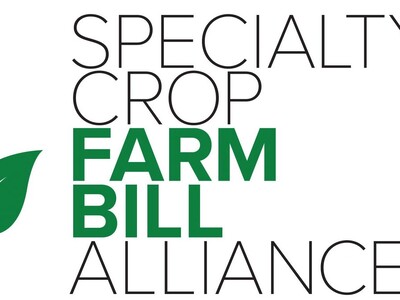Bird Control
When it comes to crop protection there’s nothing quite as effective as what comes naturally in the wild. I was fortunate enough this past week to witness this first hand at the Washington Blueberry and Asparagus Industry Field Days. I’m referring to using trained falcons to scare off smaller birds from fields, providing valuable crop protection for growers. Brad Felger, Master Falconer and Manager for Airstrike Bird Control, talks about the birds they use in their operation.
FELGER: Jim Nelson, from Washington, has brought aplomados in and bred them and we use them in our business where we fly those, including a different variety of raptors - paragons, barbary falcons, and various hybrids.
Each bird serves a different purpose.
FELGER: The aplomado tends to dig the birds out, like the robins that are wanting to stay down in the cover - where a big falcon will fly over and a lot of times the robins will crouch down.
Several different crops benefit from this type of bird control.
FELGER: We do all different kinds of small fruit. Blueberries, of course, strawberries, blackberries, and a lot of vineyards. And then we’ve gotten into other types of agriculture - leafy greens, for human safety reasons with bird feces in fields. We’ve been hired to chase geese and gulls out of lettuce fields. Starlings in hazelnuts, we’ve done blackbirds out of corn fields down in the Imperial Valley.
Felger says the days are long in the bird control business, starting at sunrise and ending at sunset. The point is to keep the first birds from coming into the fields, keeping them out, and convincing them to go elsewhere for food. Depending on topography and visibility, one falconer can cover up to eight hundred acres.
I’m Lacy Gray and that’s Washington Ag Today on the Northwest Ag Information Network.















